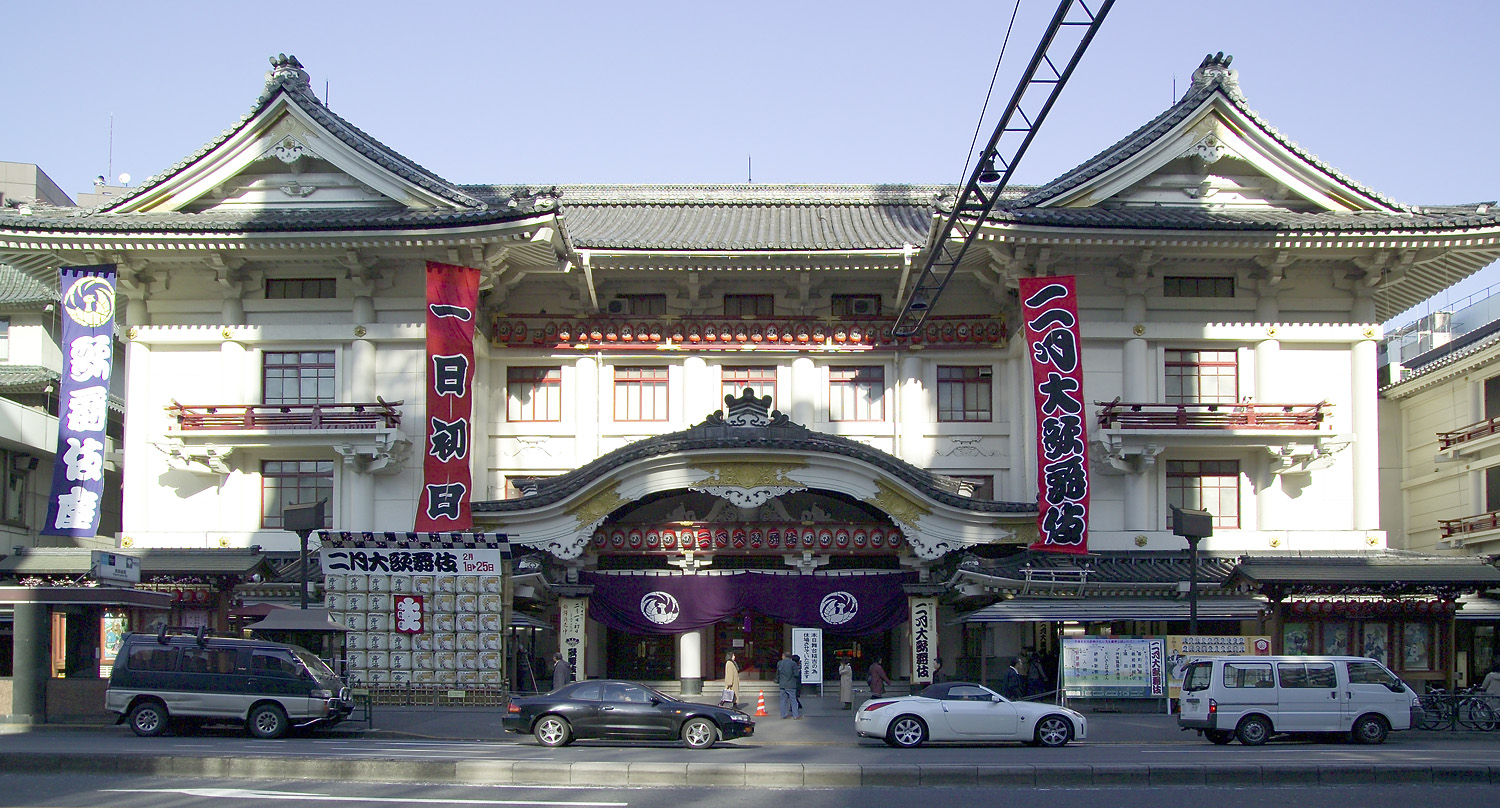- Kabuki-za
Infobox Theatre
name = Kabuki-za
歌舞伎座
caption = Kabuki-za, Tokyo's premier kabuki theater
address = 東京都中央区銀座四丁目12番15号 Ginza 4-12-15, Chūō-ku
city =Tokyo
country = flagicon|JapanJapan
designation =Registered Tangible Cultural Property
latitude = 35.66953
longitude = 139.76800
architect =
owner = Kabuki-za Theatrical Corporation
capacity = 2,017
type = Kabuki theater
opened =21 November ,1889
yearsactive =
rebuilt = 1924,Shinichirō Okata
1951,Isoya Yoshida
closed =
othernames =
production =
currentuse =
website = www.kabuki-za.co.jp/nihongo|Kabuki-za|歌舞伎座| (tyo|9661) in
Ginza is the principal theater inTokyo for the traditional "kabuki " drama form. It opened in 1889, and is one of the city's finest extant examples of Meiji-era construction using Western materials in traditional Japanese architectural styles. The building was originally constructed as the Tokyo residence of Kumamoto (Hosokawa) clan. [ [http://www.ndl.go.jp/scenery/e/data/144/index.html?type=category&p=culture_entertainment National Diet Library, "The Meiji and Taisho Eras in Photographs" online exhibit (2007)] ]The building was destroyed in a fire in 1921, and was uncompleted when the 1923
Kanto earthquake struck. It was rebuilt in a baroque Japanese revivalist style, meant to evoke theJapanese castle s of the 16th century; The theater was again destroyed in the Allied bombing duringWorld War II . It was rebuilt once again, as a reconstruction of the 1924 structure, and today remains one of Tokyo's more dramatic and traditional buildings.Performances are held nearly every day at Kabuki-za, and tickets are sold for individual acts as well as for the play in its entirety. The tickets sold for individual acts are sold as a 'taster' for the Japanese visitor who wants to find out if they are interested in watching further acts and maybe to watch a full day of Kabuki.
Kabuki is a kind of Japanese pantomime with music and dance based along the samelines as a Geisha performance in Kyoto. The short individual act is entertainingwith bright colours of performers, traditional music of shamisen and a geishaperformance as part of the act.
The theatre set in the middle of the Ginza shopping district and is a prominentbuilding of stature within the area. A traveller who wants to experience Japaneseculture and history should at least dedicate an afternoon to see a performance.
The dances are intricate and have a beautiful flow of movement accompanied by themusic of the shamisen players and singers.
References
External links
* [http://www.kabuki-za.co.jp/ Kabuki-za Official Site (in Japanese)]
* [http://www.shochiku.co.jp/play/kabukiza/theater/index.html Kabuki-za Official Site (in English)]
* [http://www.kabuki21.com/kabukiza.php Kabuki21.com] - site lists major actors and plays performed over the theater's 100+ year history.
Wikimedia Foundation. 2010.
